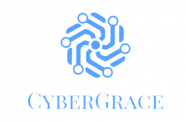Developments in medicine have not always stemmed from the need for improving the quality of drugs or treatment methods. Most are and still are the result of the need for novel methods for managing diseases, epidemics, or pandemics. Surgical procedures to correct deformities necessitate other developments, too, especially in medical equipment.
For a long while now, among the key drivers of change in health systems have been better information and the rising social distress. That has staked the future of healthcare and the medical industry on drastic resolutions as the present conditions would require. This leaving of significant positive change to chance has cost the healthcare industry heavily in managing the recent COVID-19 pandemic.
The medical industry is quickly learning its mistakes
Healthcare is now shedding off most of its hierarchical model. This approach has allowed the introduction of innovation by new players for rapid developments. This integrated ecosystem encourages collaboration with other players who do not necessarily have control over the industry in providing services that meet the industry’s needs.
Such inter-industry dependence fosters the development of rapid solutions and highly-responsive innovation. With that, the healthcare industry can address even extreme needs, such as epidemics and pandemics, without exerting much pressure on its workforce. Medical practitioners can also obtain assays and openly interact with Kinase selectivity profiling tools from other stakeholders in finding the most applicable inhibitors for their practice.
The medical landscape is most efficient with intelligent technology
 Developed, developing, and underdeveloped nations have been handling epidemics and pandemics distantly different. That underscores the need for a universal model for addressing such diseases. Data from medical practitioners around the world should be readily available for healthcare and research institutions. That way, they can analyze the rate of spreading and the impact of the disease. They also can accurately determine how much control is required to manage the epidemic or pandemic.
Developed, developing, and underdeveloped nations have been handling epidemics and pandemics distantly different. That underscores the need for a universal model for addressing such diseases. Data from medical practitioners around the world should be readily available for healthcare and research institutions. That way, they can analyze the rate of spreading and the impact of the disease. They also can accurately determine how much control is required to manage the epidemic or pandemic.
What intelligent technology will mean
This speedy and accurate analysis necessitates the implementation of intelligent technology. In the event of pandemics or epidemics, smart and intelligent technology will significantly reduce viral transmission and the disease’s socioeconomic effects. Therefore, it is time that healthcare systems integrated wearable technology for monitoring symptomatic persons and BigData for disease mapping and predictive modeling in preparing for the future.
The industry should also maintain virtual healthcare, thermal screening, and remote working to reduce viral transmission. Making verified information about epidemics and pandemics accessible for all will also aid in fighting fake news. Robotics will provide contactless services. Kinase mapping will enable selectivity profiling for learning reproducibility patterns. And the list of good news is endless, but not in the presence of bureaucratic healthcare systems.
Conclusion: Bureaucracy is unnecessary, at least not now
Embracing a less siloed structure will position healthcare well in countering future pandemics and epidemics. The industry interdependence that will results from that will, among others, create a fertile ground for dynamic innovation. With such innovation, healthcare will enjoy high responsivity to both current and future epidemics and pandemics. Practices can then implement intelligent technology without following unnecessary bureaucracy for consent, which would delay much-needed solutions.
The future is promising. Yes, epidemics and pandemics could strike hard. They will test the industry’s resilience and preparedness. They will put intelligent healthcare systems to the test. But still, they will also create better avenues for industry growth. The healthcare industry will prove ready to face these unknowns best while prioritizing global and universal health.
